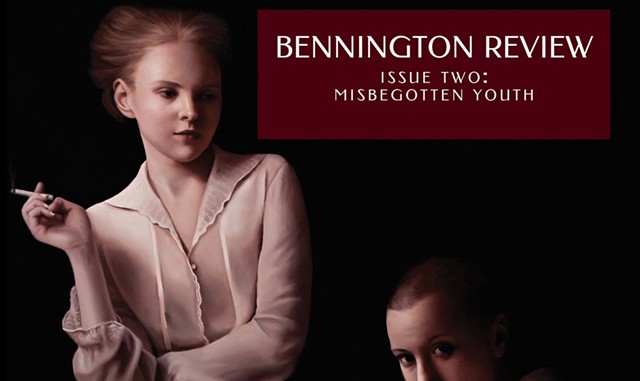SOURCE: SEVENDAYSVT.COM
A literary journal based at Bennington College, Bennington Review, is a winner of the 2022 Whiting Literary Magazine Prize. One of five magazines recognized by the Whiting Foundation, Bennington Review was selected in the “small-budget print” category. The honor comes with a $30,000 prize.
The selection is meaningful on both a “spiritual” level and for more practical purposes, said editor Michael Dumanis. He’s a poet and member of the literature faculty at Bennington College.
“It’s tremendously exciting because the Whiting Foundation is viewed within the larger American literary community as one of the most supportive and generous organizations in terms of promoting and helping with the creation of American literature,” Dumanis said. Recognition from the foundation for producing a magazine “worth reading and worth supporting is very important,” Dumanis continued, “and we’re very grateful for that.”
As a practical matter, the prize will enable Bennington Review to pay its writers more, and it will allow the publication to broaden its reach, he said.
In awarding the magazine, the judges wrote: “With an editorial vision that is razor-sharp and whimsical all at once, Bennington Review foretells the future of literary magazines.”
Bennington Review is published twice a year and contains works of poetry, fiction, nonfiction and film criticism. The magazine, which has an illustrious history, was resurrected by Dumanis in 2016, 50 years after its founding and 30 years after it had ceased publication.
Dumanis, 46, has taught at Bennington since 2012. He joined the faculty with a background in editing and publishing.
“I love teaching at Bennington,” Dumanis said, “but I was interested in re-engaging with editing in some way.”
He approached the administration about relaunching Bennington Review, which had published its last issue in 1986.
“I was startled at how supportive the college was,” Dumanis said. He recalled that the primary question posed by administrators was: Why should it be in print and not online?
“I said that I wanted something that felt curated and that had a beginning and middle and end,” Dumanis recounted, “and that there was an art object that you could hold in your hand.” The placement of a piece of writing in relation to other pieces is an important element of a literary magazine, Dumanis said. He wanted to make a publication that readers could flip through, one that feels like a book. (Limited content is published online.)
Each issue contains 70 to 90 poems, five to 10 short stories, and about half a dozen nonfiction pieces. In addition, there’s an interview with a writer. In the current issue, the 10th under Dumanis, poet Mark Wunderlich, who teaches at Bennington, interviews Vermont poet laureate Mary Ruefle.
A distinguishing feature of Bennington Review is that the first read of many submissions is by undergraduate students at Bennington College. Students in Dumanis’ poetry class read and discuss poems submitted for publication; students in a prose class read fiction submissions.
Dumanis encourages students to recognize that there’s more than one way to read and think about poetry — and the distinction is important for publishing a literary magazine. The difference concerns personal preference and “what feels right for a journal that you’re reading for,” Dumanis explained.
“I try to move away from, ‘I like this,’ ‘I don’t like this,’" he said.
Classroom discussion focuses on questions such as: What is this work doing? What is this poem or story trying to accomplish? What do we think about how it’s put together?
“Students develop a sense of their own aesthetic sensibilities as readers,” Dumanis said, “and, for many of them, as writers.”
Bennington Review receives 1,000 to 1,500 submissions a month, across genres, and publishes one to three percent, Dumanis said.
Submissions come from around the world, and all pieces are published in English. Dumanis noted in particular receiving work from writers in India, Nigeria, Canada and South Africa.
Bennington Review was founded in 1966 by Laurence Jackson Hyman, a Bennington alumnus who taught photography at the college. He’s the son of writer Shirley Jackson and literary critic Stanley Edgar Hyman. The review stopped publication in 1970 before it was relaunched in 1978 under the editorship of Robert Boyers, a professor of English at Skidmore College in Saratoga Springs, N.Y. In 1986, it again ceased publication; Dumanis revived it in 2016.
“To be an editor of a magazine, you need to love to read in the genre that you are reading all the time,” Dumanis said. “I’m always excited to read poetry by other people.”

